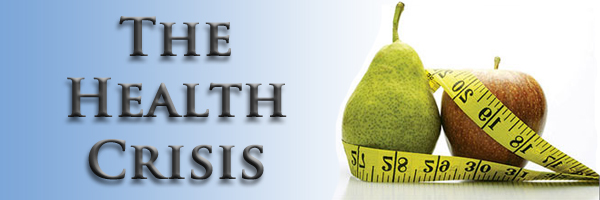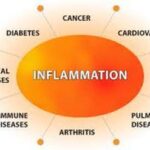
Health Crisis
Here we are in the year 2016 and I can think of a million advances in our society. Technology has made a tremendous impact in how we do business whether for social, or monetary gain and I can attest to that as I work from a computer outside in my backyard. Unfortunately, with those modern advances comes a price tag of declining health for a large majority of our population. While life expectancy has steadily increased, morbidity rates have increased which is leading to a significant number of people in the last 20% of their life living in a diseased state. Why is this happening you ask? I have compiled below my top reasons why and with possible solutions as well.
- Food Guide Pyramid- I can’t think of anything more outdated (other than BMI scale perhaps) than the food guide pyramid. For some reason we still hold unto this archaic notion of eating a high carbohydrate/low fat diet. The bottom of the pyramid (the most important they claim) has a list of breads and grains that says a person following a 2000 calorie diet should aim for 300 grams of carbohydrates a day. To get 300 grams a day a person would have to consume A LOT of unnecessary grain. This number should be cut in half based on the evidence based facts that have come about recently. Too many carbohydrates will increase a persons chances of becoming insulin resistant, which leads right in to Type II diabetes. Too much insulin also increases ones chances of obesity, heart disease, high blood pressure, cancer, high triglyceride levels, high CRP levels, and high LDL cholesterol levels. Some quick math leads us to around 60% of those total calories should come from carbohydrates which is entirely too high for all but the most extreme active people. A better percentage is 40% of total calorie intake. To make up that 20% of caloric intake should be put into more HEALTHY fats, as well as increased protein intake. The average person has no idea how many calories a day they need, so it would also help with a daily caloric guide based on someone’s weight, as well as activity level. I have found if you take your weight and multiply it times 10 you will get a good estimate of your daily caloric need. If you are active and exercise 30 minutes to 1 hour a day you can take that as high as multiplying by 12.
- Education- The only way for the general population to educate themselves on health is going to have to come from the people that know the latest data. I myself try and educate my clients and followers with as much new information as possible. I also read and keep up with the latest research and trends according to health. Those people learn from others as well, which creates a steady pipeline of research being put to print. Unfortunately, unless you have the highest amount of academic education on a certain topic, then the average person will not listen to anything you have to say. My parents generation is guilty of this notion. My mom will believe anything her GP tells her. Often times, ones own doctor is not into actually helping one with their health and most likely chose a career path in the medical field due to status or financial gain. Now this isn’t always the case, but I have found unless you are truly passionate about a subject and not doing it for those 2 reasons mentioned above, then there is no way you will be able to pass on the CORRECT education to patients. The quote “you are what you eat” has a lot of truth to it, so it is time we start to educate those in medical school about healthy nutrition. The latest research states that most medical schools provide less than 20 hours of nutrition education. This is a major problem today considering how many diseases can be decreased from better nutrition. We also should be providing information on how to cook healthy, how to cut corners financially to afford healthy foods, as well as helping patients find healthy foods that taste good!
- Lack of Ownership- We can surround ourselves with the best physicians, latest exercise equipment, lowest amount of stress, etc, but if we can’t control ourselves with what we put in our mouths than we will gain no health benefit. This has become a real problem in our culture today. It has become a feat with some people in our over consuming society to see just how much food they can eat, when it should be how little we can eat considering statistics have shown those who eat the least amount of food live the longest. The average dinner out at a restaurant has considerably too many calories and we all feel a little disappointed if it is a small plate (myself included.) If we focused on more quality food than quantity we would all be in a better state of health.
- Overprescribing- The percent of people taking medications has sky rocketed through the years. In fact, prescription drugs now kill more people annually than illegal drugs do. Now I understand that many people absolutely have to have medications to function optimally, but have we really looked at alternative solutions? We have put the prescription world into a 1 size fits all model, which unfortunately will never work. We all have unique needs and are predisposed to different diseases based on genetic factors and lifestyle choices.The problem with prescription pills are the side-effects that accompany them. In a lot of cases, it can turn into a cascade affect where you start 1 prescription, which leads to another problem and years later you keep taking more pills to fix the side-effects from each one! Our medical community has done a tremendous job in keeping people healthy, but what about the basics? Do we really have that many diseases, or do we misdiagnose? An example is a child that has been diagnosed with ADHD. For some reason we label kids who have more energy than the next kid as having a disease. Is this really a problem? My experience quite often has been these kids need more to do. Some people need more sleep, some people have more energy, some like the color blue, I think you see my point. Another example is someone that has been diagnosed with depression. But what was actually the cause? Once again, there are some who are predisposed to depression on a more deeper/genetic level, but quite often it might be a job they don’t like causing too much stress, unhappy in their marriage, a dying parent,etc,etc…Before we can properly diagnose someone we need to look at REAL solutions not more chemicals in our blood stream.
- Slow Down- At the forefront of our culture is this mentality of getting ahead at 100 mph. A large majority of the population seems to be hyper aware of the idea of saving for retirement. This is great idea on paper, but years go by fast and next thing you know you haven’t stopped to take it all in. Ironically, without great health you can’t work anyway, so you might as well put OPTIMAL HEALTH first. Saving money for a rainy day is very important, but at the expense of compromising your health? I have witnessed first hand so many people so pre-occupied with climbing the corporate ladder for monetary gain, they end up spending the last 20 years of their life using all that hard earned money to pay for their declining health status. Take a good look at your daily life and ask yourself if you are even happy with this current state of sympathetic system overdrive. If you find yourself not sleeping well, always sick, anxiety driven, you might want to slow down. Some of you might say you can’t due to so many commitments in your life, but I am certain you can cut at least a few corners. We all have a limited amount of stress we can secrete and maybe its time to start limiting your own. Too much stress has been linked to Type II diabetes, cancer, heart disease, depression, high blood pressure, loss of libido, alzheimer’s, obesity, GI problems, accelerated aging, suicide, and insomnia. That is not even half the list, so do yourself a service and find solutions to your stress filled fast paced world.


